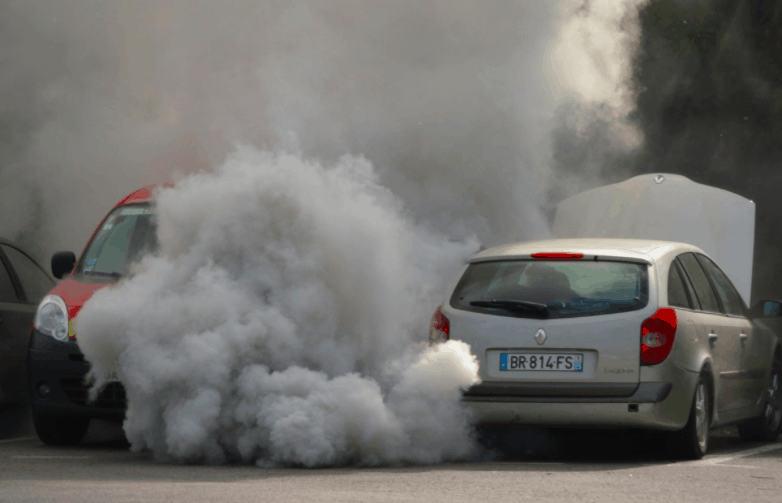A new report from Greenpeace India reveals that a year after initial nationwide lockdowns due to Covid-19, NO2 (Nitrogen Dioxide ) pollution has increased in all eight most populous state capitals studied highlighting worsening air quality. Among Mumbai, Delhi, Bengaluru, Hyderabad, Chennai, Kolkata, Jaipur and Lucknow, Delhi saw the most dramatic increase between April 2020 and April 2021. Chennai stood at second position with an increase of 94% between April 2020 and April 2021.
NO2 in Chennai
NO2 is a dangerous air pollutant that is released when fuel is burned, as in most motor vehicles, power generation, and industrial processes. Exposure to NO2 can severely impact people’s health at all ages, including the respiratory and circulatory systems and the brain, leading to increases in hospital admissions and mortality.
According to satellite observations, NO2 pollution in Chennai increased by 94% between April 2020 and April 2021. The weather had only little contribution to this change. Whereas, in Delhi, NO2 was higher by 125%, in Mumbai, 52% higher, Hyderabad by 69%, Bengaluru by 90%, Kolkata by 11%, Jaipur by 47% and Lucknow by 32% in April 2021 than in the same month of the previous year.
Read more: Ennore power plants violate emission norms, pose serious health risks: Study
As the pandemic continues to have a severe impact in India and cases are spiking in other countries, there is growing evidence that polluted cities suffer disproportionately more coronavirus cases. The health impact of fossil-fuel related air pollution is severe and has been reflected time and again in several reports. Yet there has been little change to our reliance on fossil fuels, including coal, oil and gas, increased economic activity is still largely coupled with toxic air pollution in most of the cities.
Steps to improve air quality
In 2019, the air quality data from Manali station, predominantly working class neighborhood of North Chennai recorded unacceptable pollution for 119 days. Emissions from 38 red category industries including thermal power plants, petrochemical industries, ports are the reason for North Chennai pollution, whereas vehicular pollution contributes more to Central and South Chennai pollution.
“Greenpeace’s study clearly shows this difference by comparing the lockdown and post-lockdown pollution scenario in Chennai. It is a stark reminder to have a demographic sectoral approach to address Chennai’s pollution. Shifting towards decentralised renewable energy, developing public transport infrastructure, encouraging non-motor transport and ensuring the last mile connectivity can be the focused targets to reduce vehicular pollution in Chennai,” said Prabhakaran Veeraarasu, Environmental Engineer, Poovulagin Nanbargal.
Read more: These six industries in North Chennai are polluting the air for more than half the year
“The air quality levels in these cities are alarming. The cities and the people are already paying a huge price for our reliance on burning fossil fuels, this business as usual cannot continue. People saw clean skies and breathed fresh air during the nationwide lockdown though it was an unintended consequence of the pandemic. The disruption caused by the pandemic is a case for transition to cleaner, equitable and sustainable decentralised energy sources such as rooftop solar and clean and sustainable mobility must be central to recovery efforts across cities. The recovery from the pandemic must not come at the expense of a return to previous levels of air pollution,” said Avinash Chanchal, Senior Climate Campaigner, Greenpeace India.
“Motor vehicles and industries based on fossil fuel consumption are the major drivers of NO2 pollution in Indian cities. The governments, local administration and city planners must initiate the transition from privately owned vehicles to an efficient, clean and safe public transport system that is run on clean energy that of course, must provide COVID-19 related safety measures,” added Chanchal.
(This article is based on a Press Release by Greenpeace India team and has been republished here with minimal edits.)
